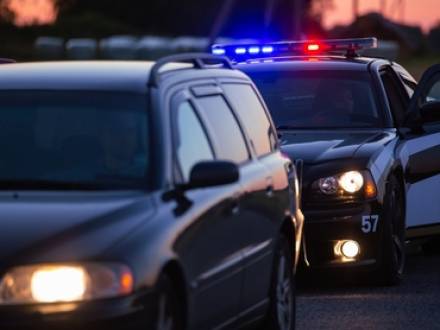Why Is Fort Worth Cracking Down on Drunk Driving?
 The Fort Worth Chief of Police stated in a recent press conference that law enforcement agencies throughout the area will increase patrols targeting drunk drivers. This comes after three drunk driving accidents occurred between Aug. 12th and Aug. 19th. One of the victims was an officer who was helping clear another crash when an inebriated woman driving the wrong way on the exit ramp hit and killed him.
The Fort Worth Chief of Police stated in a recent press conference that law enforcement agencies throughout the area will increase patrols targeting drunk drivers. This comes after three drunk driving accidents occurred between Aug. 12th and Aug. 19th. One of the victims was an officer who was helping clear another crash when an inebriated woman driving the wrong way on the exit ramp hit and killed him.
Another police car was hit by a drunk driver a few days later; thankfully, no officers were inside or around the car at the time. Five other people were killed in a single drunk-driving collision during the same week. At the press conference, the Sheriff of Tarrant County said his department had seen a significant increase in DWIs, with 63 people being arrested during the first two weeks of August. While nobody is in favor of drunk drivers having accidents that injure or kill others, in many cases, a prosecutor can be overzealous in leveling DWI charges.
If you feel you have been unfairly targeted, that your breathalyzer test or field sobriety was inaccurate, or that there was no reasonable suspicion to pull you over, it is important that you speak to a Fort Worth, TX DWI attorney from The Dameron Law Firm as quickly as possible. We understand that good people can make a single mistake and that in some cases, DWI charges are not warranted.
Are Texas DWI Checkpoints Legal?
While DWI checkpoints are technically illegal in Texas, there are ways law enforcement can circumvent this, usually by having a checkpoint to "make sure people are driving with a valid driver’s license." While these types of roadblocks fall into a "gray" area, legally speaking, if the officer has any reason to suspect a driver is under the influence of alcohol or drugs, the driver could be asked to perform a field sobriety test or a chemical breath test. Reasons to ask a driver to perform these tests could include:
-
A strong smell of alcohol
-
Fumbling while looking for insurance and registration documents
-
Incoherent replies to the officer’s questions
-
The presence of drugs or alcohol in the vehicle in plain sight
-
Slurred speech, red eyes, a flushed face, or other physical signs of impairment
In addition to proving law enforcement had reasonable suspicion to pull a driver over at a checkpoint, the prosecutor must show that the checkpoint followed these rules:
-
The checkpoint was in a reasonable location.
-
The checkpoint was clearly "official" in nature.
-
The supervising law enforcement officer made every operational decision regarding the checkpoint.
-
There was a public advertisement for the checkpoint prior to setting it up.
-
Good judgment was reflected in the duration and time of the checkpoint.
-
Safety precautions were taken into account when the checkpoint was set up.
What if Your Breathalyzer Results Are Inaccurate?
The accuracy of BAC readings can be affected by an individual’s lung capacity, rate of alcohol metabolism, body temperature, illnesses, medications, age, gender, diet, and even a person’s profession. The timing of the test in relation to when alcohol was consumed is also crucial; the officer must be certified in administering breathalyzer tests, and the machine must be properly calibrated and maintained.
Contact a Tarrant County, TX DWI Lawyer
If you are facing DWI charges, attorney Craig Dameron will work hard to help you lessen the impact. Your DWI charges may be reduced or dismissed, depending on the facts. Our Fort Worth, TX DWI attorney understands that a conviction can alter your life forever, and he will zealously build a defense that will result in the best possible outcome. Contact The Dameron Law Firm at 817-222-0624 to schedule your free consultation.

 817-222-0624
817-222-0624







